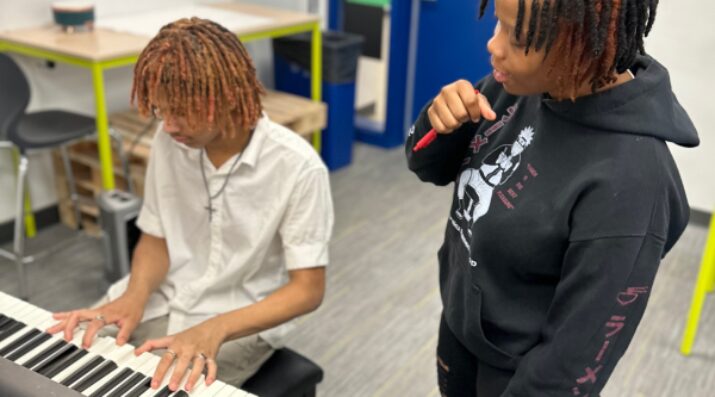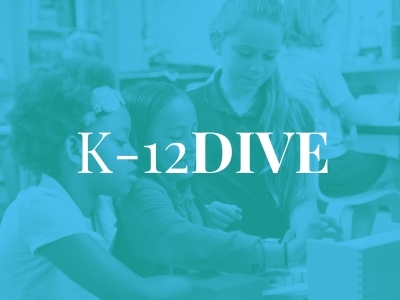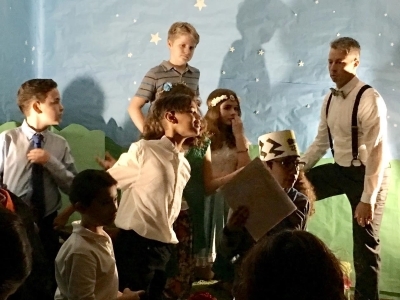What Do Love, Play, and Connection Have to Do with Next Gen Learning?
Topics

Today’s learners face an uncertain present and a rapidly changing future that demand far different skills and knowledge than were needed in the 20th century. We also know so much more about enabling deep, powerful learning than we ever did before. Our collective future depends on how well young people prepare for the challenges and opportunities of 21st-century life.
These are the issues that next gen learning advocates want to learn more about: restorative practices, chronic absenteeism, student-centered learning, and the value of feedback for youth and adults.
This time of year reminds me about the value of reflection—looking back—and resolutions—looking forward. It feels particularly important in education because reflecting and making resolutions are important to the learning process, not just ringing in the new year: to assess the past, engage in the present, and set goals for the future, that’s what sets learning and development in motion.
One way to understand where we’ve been as a field is by reflecting on the issues and innovations that the next gen learning community wrote about and read about over the past year on the Next Gen Learning blog. And as you make resolutions for your schools in the new year, this resource can be a guide of what’s next gen about next gen learning in 2025. Look for references to love, play, and connection!
Restorative Justice Practices
Connection before Content: Operationalizing the 80/20 Rule of Restorative Practices
Kate Merrigan, Director of Student + Community Development, Berkshire Arts & Technology Charter Public School (BART)
After a visit to Casco Bay High School in Maine, these five approaches stand out as essential to creating a school culture that supports academic success, strong attendance, and a sense of belonging.
Restorative Justice at Fremont High School: Building Trust through Positive Relationships
Sarah Klevan, Senior Researcher, Learning Policy Institute
Restorative practices in school isn’t only an alternative to discipline. As seen at Fremont High School, it transforms relationships and culture so students can thrive.
Learn more about Restorative Practices: Restorative Practices in Schools Toolkit
Addressing Chronic Absenteeism
How to Teach Students Who Aren’t There
Robert Barnett, Co-Founder, The Modern Classrooms Project
When chronically absent students do make it to school, they often feel lost and frustrated and behind. Self-paced, mastery-based learning can help them learn, and it can keep the rest of the class moving forward too.
Dig Deeper into Chronic Absenteeism
• Attendance as Performance Assessment
• How Community Partners and Schools Work Together to Re-Engage Students in Learning
• Hope in a Time of a Failing Education System: A Call for Transformation
Equitable Student-Centered Learning
Educating at the Intersection of Purpose and Passion—Love Is the Answer
Kara May, Director of Partnerships & Creative Development, Art In Motion – Creative Arts School
What would it look like if teaching started with purpose, passion, love, and equity?
How to Nurture Diverse and Inclusive Classrooms through Play
Rebecca Horrace, Playful Insights Consulting, and Laura Dattile, PlanToys USA
By infusing play into teaching, educators can create an interactive environment where students of all ages can approach complex topics with enthusiasm, adventure, and a sense of curiosity while achieving educational goals.
My Students Aren't Lazy but Labeling Them Lazy Is
Laura Domingo, ELA Teacher and Modern Classrooms Project Mentor
Blended, self-paced learning can create time for teachers to move beyond shortcut labels to get to know students and their true potential for learning.
Could AI Accelerate a Revolution in Schooling?
Chris Unger, Teaching Professor, Northeastern University
“Teachers simply didn’t know. They had heard all of the talk, kids using AI to cheat, but no one had shown them how it could be used to help kids learn.”
Learn more about AI for Next Gen Learning
• Student-Centered AI Toolkit: Transform Schooling with AI Tools
• Collective Shift: Human-Centered AI for Learner-Centered Education
Learn more about Centering Learners: Student Voice to Transform Education for Equity Toolkit
Using Feedback to Improve Teaching and Learning
“Feedback Is Love:” Meaningful Classroom Walkthroughs
Ben Klompus, Relay Graduate School of Education, and Mark Toner, Education Writer
Focus walks can help school leaders provide meaningful and targeted instructional feedback and support to teachers, leading to better experiences and outcomes for students.
What It Takes to Move from Tokenized Student Involvement to Meaningful Student Voice Work
Nathan Ngieng, Aristotle-Maximus Zwinge, and Harshan Oberoi, Abbotsford School District
To support student agency and meaningful student participation in their schools and their learning, we need to listen to student voices in different, better ways.
Connections over Consequences: Effective Strategies for Collaborative Problem-Solving with Students
Sanchel Hall, K-8 Educator, Sumner County Schools
Classroom behavior management? Find out why empathetic listening and collaborative problem-solving can change outcomes and lead to better learning.
Photo at top courtesy of Distinctive Schools




